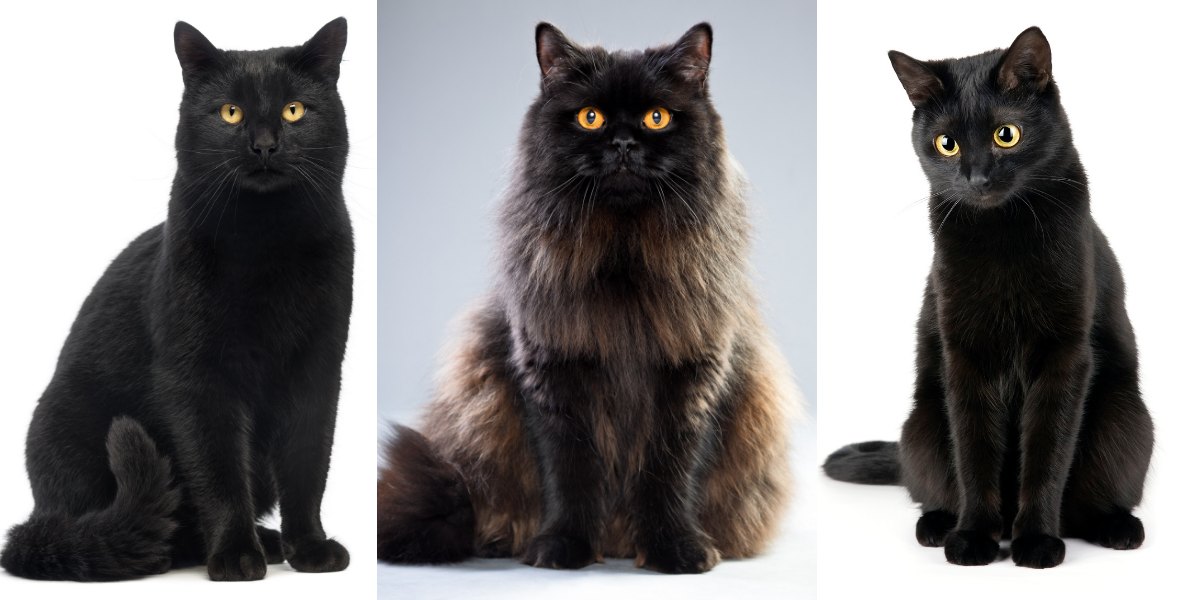 As some of the most misunderstood members of the cat world, black cats aren’t always what they seem. Some say they’re bad luck.
As some of the most misunderstood members of the cat world, black cats aren’t always what they seem. Some say they’re bad luck.
Others see a dark-colored cat and conjure images of witches and monsters. These unwarranted associations with all things creepy have given black cats an unfair, and flat-out wrong, reputation. In reality, black cats are friendly, loyal, and stunning.
They make affectionate family members and are just as personable and social as any other colored feline. There are a lot of interesting characteristics that make black cats special. From their history of being worshiped to genes that give them physical advantages, there is plenty to love about these inky-colored cats. So here are 7 little known fun facts about black cats…
1. The Most Dominant Cat Color
Cat color is always dependent on genes. Every cat gets two sets of color-coding genes, one from each parent. Some colors are recessive, and some are dominant. Without pulling out your high school biology notes, the basic explanation is that some color genes override others and make it more likely for a cat to have that colored fur.
When it comes to black cats, the gene that codes for black fur is the most dominant of all the possible fur colors. This means if two cats that each possess the gene for black fur (even if they aren’t black themselves), reproduce, their offspring will be black.
Even if only one parent has the gene, there is still a high probability for black kittens. The gene for black fur even overrides the gene that calls for the common tabby pattern. As a result, there are more black cats than any other color.
2. Black Fur Can Hide Patterns
While black cats are the most common of all cats, not every dark-colored feline you see is truly a solid black cat. The gene for black fur has the power to repress the gene for the tabby coat pattern, but it doesn’t delete it. In cats that only have one black fur gene, the tabby pattern might still be there.
Often called “undercover tabbies,” these black cats actually have subtle stripes, swirls, or spots. When you look at them in certain lighting or at certain angles, you can see that the tabby gene hasn’t been completely overridden.
3. Color-Changing Cats
In addition to having undercover coat patterns, some black cats even change color. When an outside cat spends a significant amount of time basking in the sun, the UV rays can break down the black pigment of their fur.
This is called “rusting” and results in a cat turning a rusty brownish-red color with age. This color phenomenon often helps reveal the tabby coat pattern that was hiding underneath that dark fur.
4. Not All Black Cat Breeds Are the Same
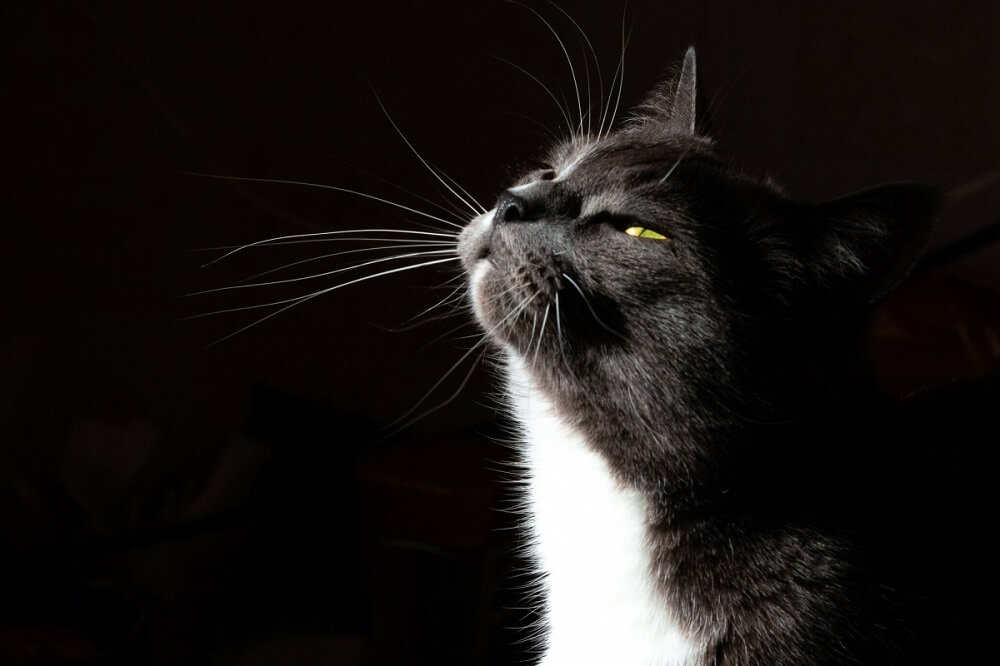
Black cat breeds can vary in terms of their breed-specific characteristics, temperament, and physical traits
Another misunderstanding about black cats is that they’re all the same breed. In fact, there are 22 cat breeds that can potentially have solid black fur. Some of these breeds have long, fluffy fur, and others are short-haired and sleek-looking. Black cats aren’t necessarily rare. That said, there are specific breeds like the Bombay or the Oriental Shorthair that are predominantly black in color.
The most renowned black cat breed is the Bombay. These short-haired and solid-colored cats were bred to look like miniature black panthers. They’re the only breed that is always solid black; there are no other colors accepted in their breed standards.
Besides the Bombay, the American Bobtail, Ragamuffin, Sphynx, Persian, Scottish Fold, and several other breeds have black fur. Black fur is also common for mixed breed cats.
5. A Stroke of Luck
There’s no clear origin to the idea that black cats bring bad luck. Some think the idea came from a story in Greek mythology where the goddess Hera punished a servant by transforming them into a black cat. The servant then joined forces with the goddess of witchcraft.
In 1233, Pope Gregory IX announced his belief that black cats were demons in disguise. One man’s righteous declaration led to centuries of misinformation.
Black cats haven’t always been scorned, however. There were some places and some time periods where black cats were considered good luck. In Japan, for example, black cats are believed to be harbingers of economic success and true love.
Many European sailors also considered black cats good luck and often sought them out to bring onboard their ships. The sailors’ wives also kept black cats at home to help ensure their husbands made it home safely. They loved black cats and considered them friendly, affectionate, and loving as cats of any other color.
6. Cats Worth Worshiping
Black cat facts and myths go back to primeval history. Besides being lucky, some ancient cultures even believed black cats were gods. Ancient Egyptians believed in the goddess Bastet who helped protect women and crops. Bastet’s physical form was believed to be a woman with the head of a black cat. Every black cat, therefore, was the embodiment of Bastet. They were revered throughout the community, and killing a black cat led to a death sentence.
7. A Physical Advantage and a Captivating Personality
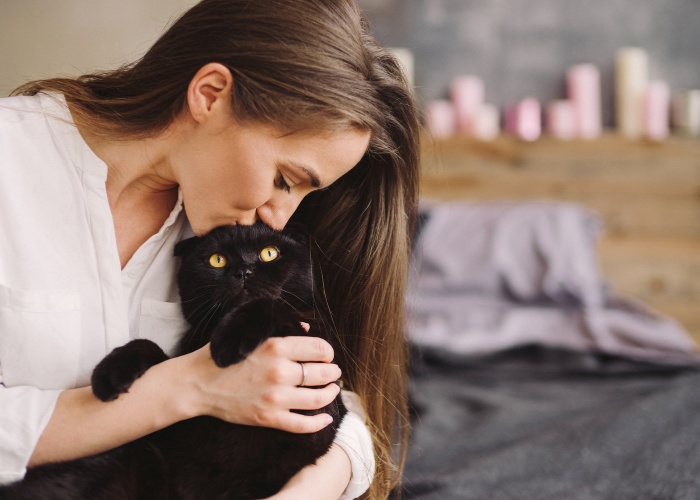
Research has found that the gene that codes for black fur color also possesses attributes that support the immune system. With a bolstered immune system, black cats have a stronger resistance to common illnesses and serious diseases.
Black cats have endured more than their fair share of defamation, but their genetics suggest they have a not only a physical advantage that other cats lack but also a outgoing and friendly personality.
Research has found that the gene that codes for black fur color also possesses attributes that support the immune system. With a bolstered immune system, black cats have a stronger resistance to common illnesses and serious diseases. Scientists aren’t sure if there’s an evolutionary reason behind this phenomenon or if it’s a lucky coincidence that benefits black cats.
The perception that black cats are mostly male might stem from historical superstitions or cultural beliefs rather than actual population statistics.
Society isn’t always kind to black cats, but they’re lovable pets that deserve good homes just as much as any other cat.
Also Read: Understanding The Spiritual Meaning Of Black Cats
-
https://www.rd.com/list/black-cat-breeds/
-
https://www.ambassadoranimalgreenville.com/myths-and-facts-about-black-cats/
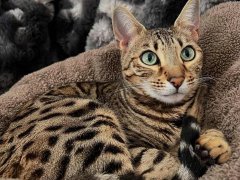
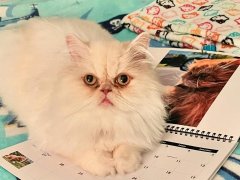
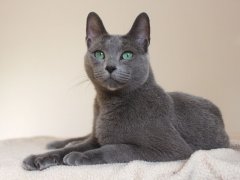
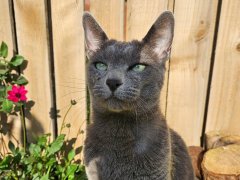
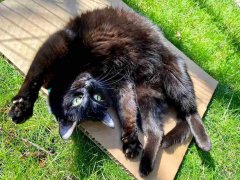
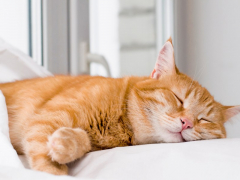
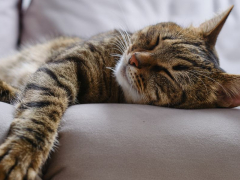
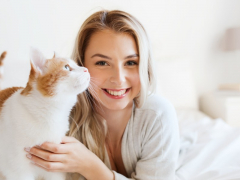
I have had black cats all my life. I believe they are the most loving, cuddly, loyal cats out there. They have received an unfair reputation. I live in the country and people drop cats off all the time at my barn. I am currently up to 11 cats, 7 of them being black and typically 5 out of the 7 sleep with me every night, 1 literally on top of me. They love to be around me, love attention and are very well behaved. I love all my cats, but I know for sure I will always have a black cat as long as I can care for them.
I recently watched your video on orange cats. My daughter and I both have one, she has a female and I have a male. Both are manx. Both are as you described, the female is smaller than average and the male is larger than average ( however he is part maine coon). They both do not fit the orange cats features; they are shy, non aggressive, non affectionate creatures. I have breed manx cats since the 80’s and never had any cats like these before. We know that they love us because they follow us around and demand our attention but they just don’t want to be too close like our other cats. That went in the shower and bath with us. And had to go in the car like our dog did. They are both very stand offish even for a regular cat.
I had an all black kitty that was just a tiny kitten when she showed up at our house. I took her in and she lived with us till she was 20 yrs old. beautiful kitty. She was smart and loved to be loved and held. I miss her so much but I do know she had a great life with us. Salem you were the best little girl.
I’ve had the pleasure of owning 3 black cats. While each cat had it’s particular traits, all of mine have been loving & beautiful. Two of my black cats could’ve been twins in appearance & personality. Both were quite laid back, very little meowing & purr loudly & often for a variety of reasons. One was a male that loved people but would become very defensive & aggressive towards people they sensed as threats. He’d be sleeping quietly, calmly, but let a stranger come in they sensed as bad, he’d hiss, raise his back & essentially go after them. The female black cat loves everyone, seeks being pet. My third black cat is sleeker than the other two, willowy, sneakier & loves to chew on everything-blind strings, match sticks, fake & real plants, often doing anything repeatedly regardless of her “punishment”. Her least favorite one is the water squirt gun. All I have to do is pick it up to have her run to safety & out of whatever she shouldn’t be in. She’s very loving & beautiful also, but gets sassy, and talks/meows a lot. She hides when new people come under something, doesn’t like being approached, and can become more aggressive to let you know to stop whatever you’re doing. I have loved each of my black cats, and as long as I feel I can care for a cat, it’ll be a black cat.
What good timing. Im actually in the process to adopt a black kitten. I specifically looked for a black one cause of the stigma around them leading to low adoption rates.